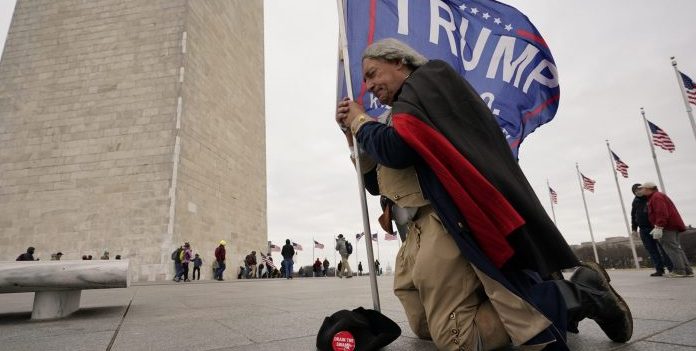(Ken Silva, Headline USA) Despite admitting that at least 11 Jan. 6 inmates have been held in pretrial detention long past what could be considered the timeline for a speedy trial, Attorney General Merrick Garland refused to do anything to rectify the situation.
Garland’s remarks came Wednesday during a DOJ budget hearing, in response to questions from Rep. Andrew Clyde, R-Ga.
Clyde started his round of questioning by asking Garland about the case of Mark Houck, who was arrested last September for allegedly shoving someone outside a Planned Parenthood. Houck was acquitted of all charges in January.
Clyde and Garland agreed that Houck’s case represented a speedy legal process.
But when Clyde asked Garland about how a speedy trial is defined under the Speedy Trial Act, the attorney general did not know. The answer is 70 days from when a complaint is filed, Clyde informed Garland.
Clyde then said he recently visited Jan. 6 inmates at the DC Correctional facility. According to Clyde, 11 of the 20 remaining inmates have yet to go to trial for more than two years.
“Eleven of the 20 have not accepted a plea deal, nor have they been brought to trial. Today is March 29, 2023. Is it true some of these people have been waiting about 2 years for their trial?” the congressman asked.
Garland responded by pleading ignorance. When Clyde pressed Garland on whether he’ll look into the situation, the attorney general made a flippant comment about the inmates having their lawyers do that.
“The beauty of the 6th Amendment is that each of those defendants have a right to an attorney, who can argue that to the court,” he said.
“I would like you to look into that, because id don’t think waiting two years complies with the Constitution,” Clyde pressed further.
“That’s for a judge to decide,” Garland shot back.
Garland added that in many cases, discovery issues and other motion proceedings can delay trials past the 70-day statutory limit. Exceptions to the Speedy Trial Act apply in those cases, he said.
In the Jan. 6 cases, delays have transpired because the DOJ has been reluctant to disclose exculpatory evidence. And when they do provide exculpatory evidence, it’s often buried in terabytes of useless data that’s hard to sift through, according to defense attorneys.
Ken Silva is a staff writer at Headline USA. Follow him at twitter.com/jd_cashless.

